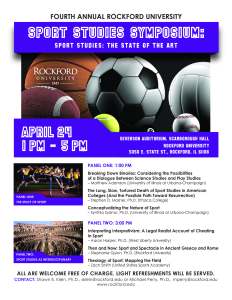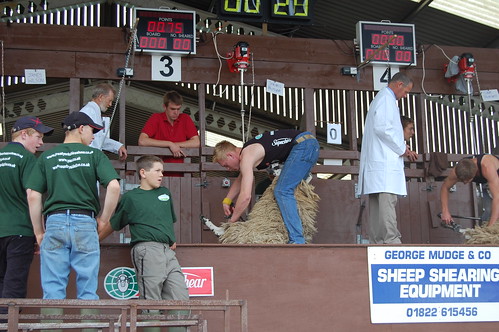 Rockford University is hosting the Fourth Annual Sport Studies Symposium on Friday, April 24, 2015 from 1:00pm to 5:00pm (CT) in Severson Auditorium, Scarborough Hall, Rockford University, Rockford, IL.
Rockford University is hosting the Fourth Annual Sport Studies Symposium on Friday, April 24, 2015 from 1:00pm to 5:00pm (CT) in Severson Auditorium, Scarborough Hall, Rockford University, Rockford, IL.The conference is free to attend and light refreshments will be served.
Panel One: The Study of Sport
- “Breaking Down Binaries: Considering the Possibilities of a Dialogue Between Science Studies and Play Studies” – Matthew Adamson (University of Illinois at Urbana-Champaign)
- “The Long, Slow, Tortured Death of Sport Studies in American Colleges (And the Possible Path Toward Resurrection)” – Stephen D. Mosher, Ph.D. (Ithaca College)
- “Conceptualizing the Nature of Sport” – Synthia Sydnor, Ph.D. (University of Illinois at Urbana-Champaign)
Panel Two: Sport Studies as Interdisciplinary
- “Interpreting Interpretivism: A Legal Realist Account of Cheating in Sport” -Aaron Harper, Ph.D. (West Liberty University)
- “Then and Now: Sport and Spectacle in Ancient Greece and Rome” – Stephanie Quinn, Ph.D. (Rockford University)
- “'Theology of Sport: Mapping the Field” – Zach Smith (United States Sports Academy)
Symposium Flyer (PDF)


